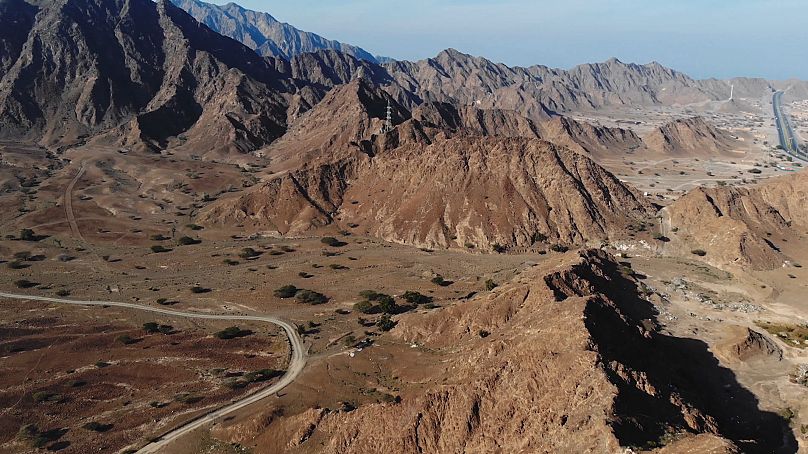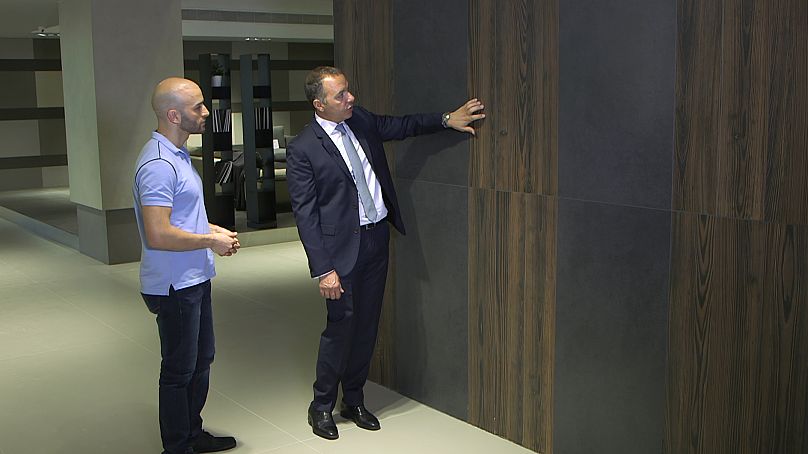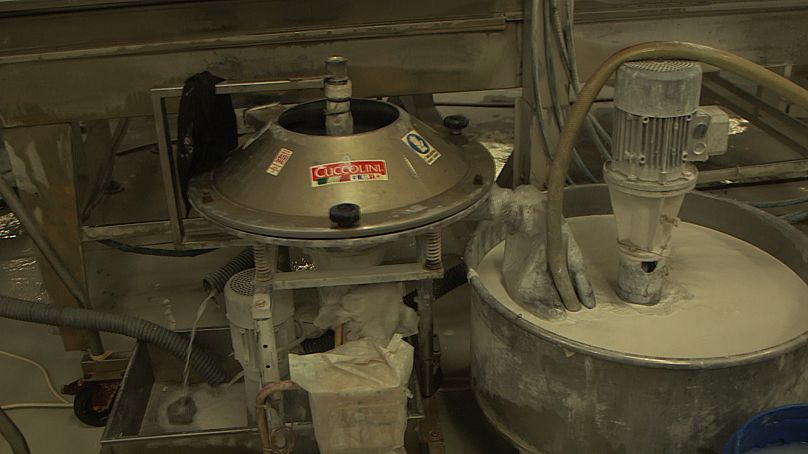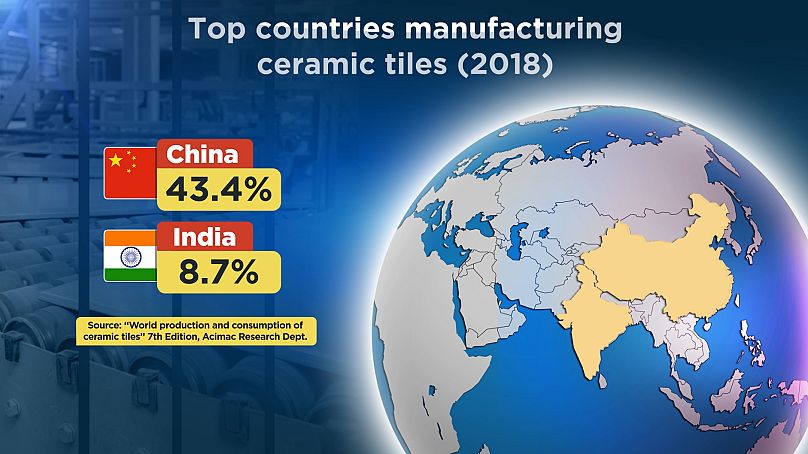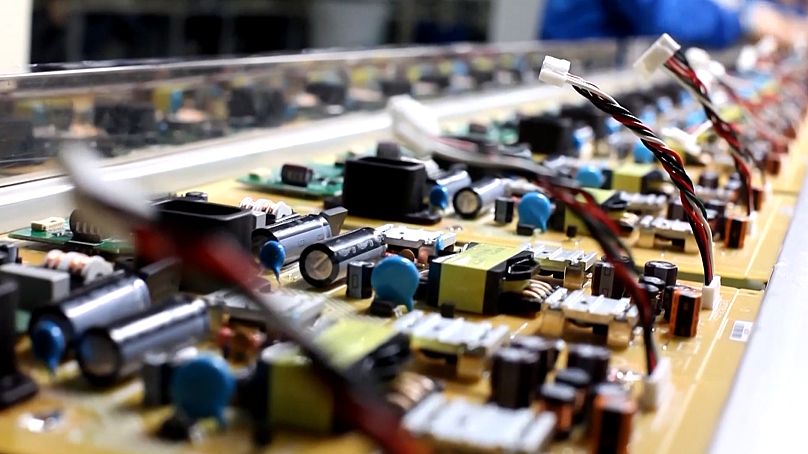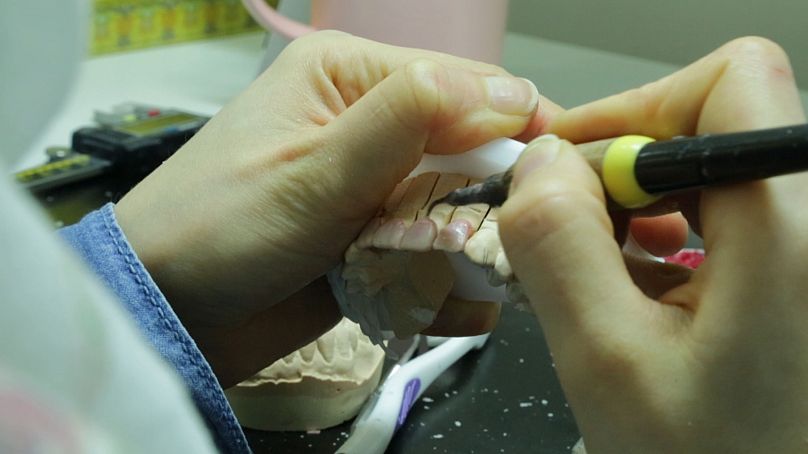Tiles are the building blocks of the global ceramics sector, according to Grand View Research
Tiles are the building blocks of the global ceramics sector, according to Grand View Research.
 ADVERTISEMENT
ADVERTISEMENT
 ADVERTISEMENT
ADVERTISEMENT
The analytics and consulting company places the value of the market segment at more than half of the wider $230-billion-dollar ceramics industry.
One of the top five tile producing companies in the world is RAK Ceramics, based in the United Arab Emirates emirate of Ras Al Khaimah.
Founded in 1989, the organisation creates more than a 100-million square meters of tile and millions of sanitary and tableware products annually.
The firm exports its goods to more than 150 countries from its 21 factories across the UAE, India, and Bangladesh.
RAK Ceramics’ tiles can be found inside iconic buildings like the Burj Khalifa in Dubai, and Wembley Stadium in the UK.
Abdallah Massaad, the CEO of RAK Ceramics, explained to Euronews that customised ceramics were driving business today.
“I started working in this industry since 1991. We were fortunate at that time to sell part of a kitchen and part of a bathroom,” he says. “With the evolving of technology, we are able today to print on any [tile] surface.”
Massaad’s team creates ceramic slabs as large as 135 by 305 centimeters, which can have designs or effects printed on them, replicating the look and feel of marble, metal, or wood.
The company argues that its products are more durable than their natural counterparts.
Advancements and investments in technology have allowed RAK Ceramics to reduce its overheads in recent years.
“We invested in co-generation, where we use the heat from the kiln and re-use it to produce our electricity, where it reduced the energy cost,” states Massaad, adding, “We recycle more than 40% of the water.”
As of June, RAK Ceramics’ year-to-date revenues came in at $350 million which was driven mostly by domestic demand from the UAE, followed by Europe.
GLOBAL TILE MARKET
China and India account for more than half of the world’s ceramic tile production, according to research by ACIMAC, the Association of Italian Manufacturers of Machinery and Equipment for Ceramics.
Whereas Middle Eastern countries among the top ten tile manufacturing countries include Iran, Turkey and Egypt.
The report also stated that the largest importer of ceramic tiles this year has been the United States, followed by Iraq and Saudi Arabia.
ADVANCED CERAMICS
A fast-growing area of the global ceramics market is that of advanced ceramics. These ceramics can be defined as having superior properties which make them highly resistant to heat, scratching, bending and corroding.
They can be found in military equipment and within smartphones, they’re used to build capacitors that minimize the release of electricity.
In medicine, high-density alumina is used to reconstruct fractured or arthritic joints.
Ceramics are also being used in dentistry to make porcelain teeth for implants and crowns. Some dental practitioners say this provides patients with an authentic look and feel.
The process involves using a person’s natural imprint to create a mold, which is then cooked at 1500 degrees Celsius for strength, before being layered with different categories of ceramic materials.
With more applications and uses for ceramics being discovered, the advanced market is expected to outperform the broader global industry in the coming years. Grand View Research estimate that over the next six years, the advanced ceramics sector will expand by 8.6%.
SEEN ON SOCIAL MEDIA: TILES IN STYLE
Elena from the UK added a touch of glamour to her bathroom with tiles from Ras Al Khaimah.











